A hybrid solar system represents an advanced and versatile approach to harnessing solar energy, integrating various technologies to enhance the efficiency, reliability, and flexibility of energy production and consumption. This system combines solar photovoltaic (PV) panels with other power sources and energy storage solutions to meet energy needs more effectively and sustainably. In this comprehensive overview, we will delve into the key components, benefits, and considerations of hybrid solar systems.
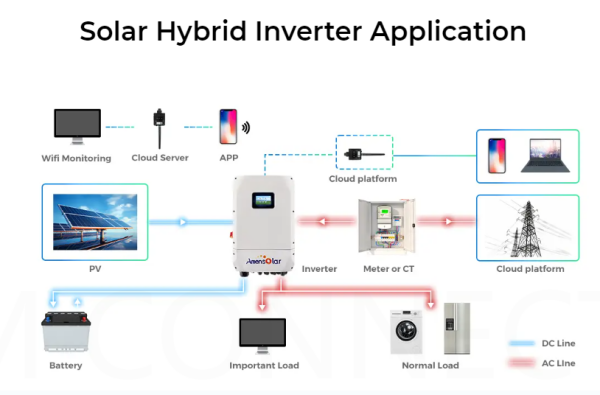
Components of a Hybrid Solar System
1.Solar Photovoltaic (PV) Panels
Solar PV panels are the core of any solar energy system. They consist of photovoltaic cells that convert sunlight directly into electrical energy through the photovoltaic effect. These panels are typically installed on rooftops or open spaces with ample sunlight exposure. The electricity generated can be used to power household appliances, lighting, and other electrical devices.
2.Battery Storage
One of the defining features of a hybrid solar system is its integration with battery storage. Batteries store excess energy generated by the solar panels during periods of high sunlight. This stored energy can be used when solar generation is insufficient, such as during the night or on cloudy days. Modern batteries, like lithium-ion or flow batteries, offer high efficiency, long cycle life, and faster charging capabilities compared to older lead-acid batteries.
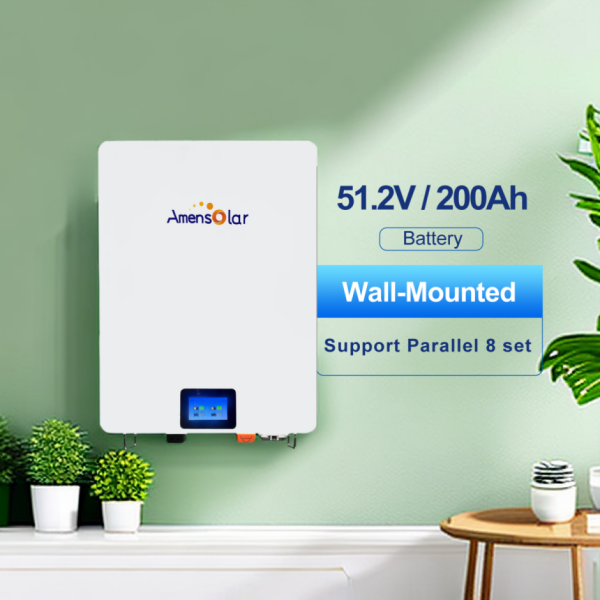
2.Grid Connection
Many hybrid solar systems are connected to the electrical grid, allowing for a seamless integration of solar energy with the existing power infrastructure. This connection provides a backup source of power when solar and battery resources are depleted. Additionally, surplus solar energy can be fed back into the grid, often earning credits or compensation for the excess power provided. This feature is particularly useful for managing energy needs during high-demand periods or when the solar system is not producing enough energy.
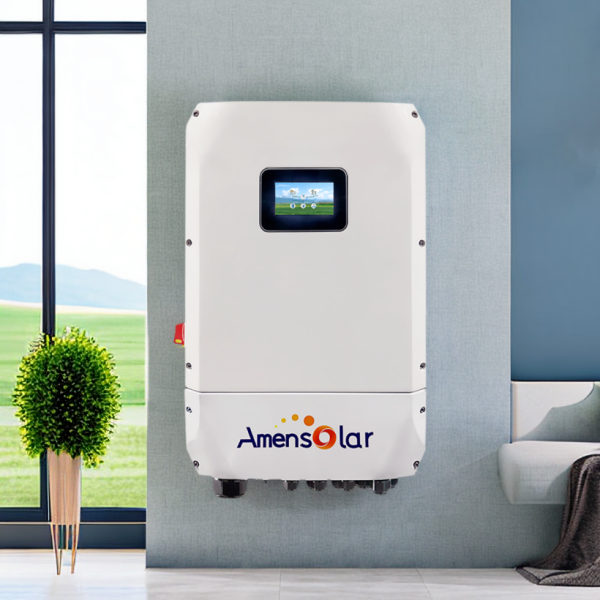
3.Backup Generator
In some hybrid systems, a backup generator is included to ensure continuous power supply during prolonged periods of low solar generation or battery depletion. These generators, which can be powered by diesel, natural gas, or other fuels, provide an additional layer of reliability and are typically used as a last resort when both solar and battery resources are insufficient.
4.Energy Management System (EMS)
An Energy Management System is crucial in a hybrid solar setup. It monitors and controls the flow of energy between the solar panels, batteries, grid, and backup generator. The EMS optimizes energy use by deciding when to draw power from each source to minimize costs, maximize efficiency, and ensure a stable power supply. It can also provide insights into energy consumption patterns and system performance, allowing for better management and decision-making.
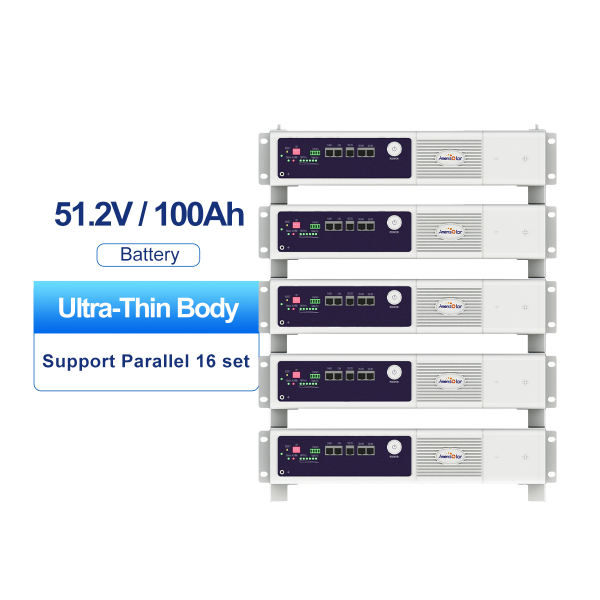
Benefits of a Hybrid Solar System
1.Enhanced Energy Reliability
Hybrid solar systems offer superior reliability compared to traditional solar-only systems. By combining solar power with battery storage and a grid connection, these systems provide a consistent and dependable energy supply. Even during power outages or extended periods of poor weather, the backup generator and battery storage can ensure that essential services and appliances remain operational.
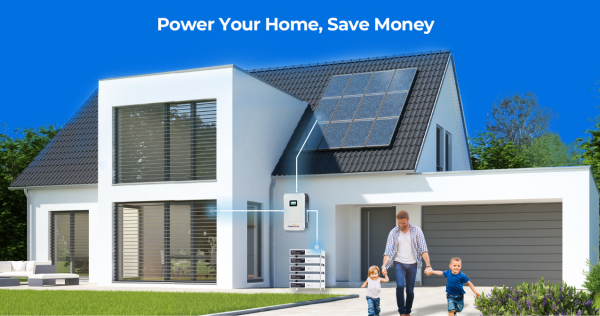
2.Increased Energy Efficiency
The integration of battery storage in a hybrid solar system allows for better utilization of generated solar power. Excess energy produced during peak sunlight hours is stored and used later, reducing reliance on grid electricity and optimizing the use of renewable energy. This leads to a more efficient energy system overall and can lower electricity bills.
3.Cost Savings
By generating and storing your own solar power, you can reduce or eliminate your reliance on grid electricity, leading to potential cost savings on energy bills. Additionally, in regions where net metering is available, you can earn credits or compensation for the surplus energy fed back into the grid. Over time, these savings can offset the initial investment in the solar system.
4.Environmental Impact
Hybrid solar systems contribute to environmental sustainability by reducing reliance on fossil fuels and lowering greenhouse gas emissions. By harnessing renewable solar energy and minimizing the use of traditional power sources, these systems help reduce your carbon footprint and support a cleaner, greener planet.
5.Energy Independence
A hybrid solar system can provide a degree of energy independence by reducing your reliance on external power sources. This is particularly valuable in remote or off-grid locations where access to reliable electricity is limited. With a hybrid system, you can achieve greater control over your energy supply and reduce vulnerability to power outages and fluctuations in energy prices.
Considerations for Hybrid Solar Systems
1.Initial Costs
The installation of a hybrid solar system involves a significant upfront investment. Costs include solar panels, battery storage, inverters, backup generators, and the Energy Management System. While these systems can lead to long-term savings, the initial expense can be a barrier for some homeowners or businesses. However, various incentives, rebates, and financing options are often available to help offset these costs.
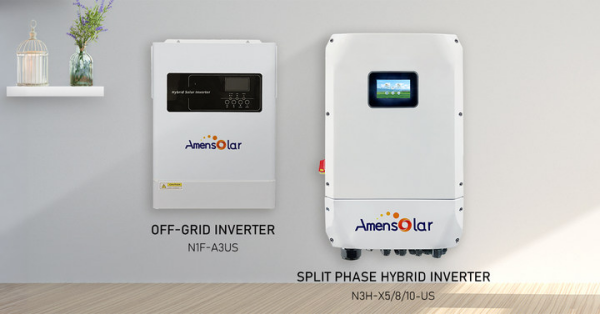
2.Maintenance and Longevity
Hybrid solar systems require regular maintenance to ensure optimal performance. This includes checking and maintaining solar panels, batteries, inverters, and backup generators. Battery life is a crucial consideration, as different types of batteries have varying lifespans and performance characteristics. Proper maintenance and timely replacement of components are essential to ensure the system continues to operate efficiently.
3.System Sizing and Design
Proper sizing and design of a hybrid solar system are critical for achieving desired performance and efficiency. Factors such as energy consumption patterns, available sunlight, battery capacity, and backup generator requirements must be considered. Working with a qualified solar installer or energy consultant can help ensure that the system is tailored to meet specific needs and optimize performance.
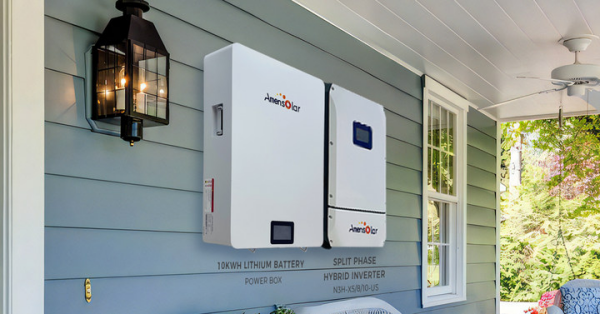
4.Regulatory and Incentive Considerations
Local regulations, building codes, and incentive programs can impact the installation and operation of hybrid solar systems. It is important to be aware of any permits or approvals required for installation and to take advantage of available incentives or rebates that can help reduce costs. Understanding these factors can help ensure a smooth installation process and maximize the benefits of the system.
Conclusion
A hybrid solar system represents a sophisticated and flexible solution for meeting energy needs in a sustainable and reliable manner. By combining solar PV panels with battery storage, grid connectivity, and backup generators, these systems offer enhanced energy reliability, efficiency, and independence. While the initial investment and maintenance considerations are important factors, the long-term benefits in terms of cost savings, environmental impact, and energy security make hybrid solar systems a compelling choice for many homeowners and businesses. As technology continues to advance, hybrid solar systems are likely to become even more efficient and accessible, further supporting the transition to renewable energy and a more sustainable future.
Post time: Aug-21-2024








